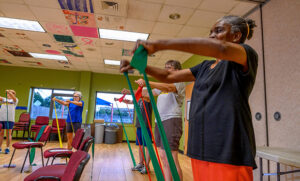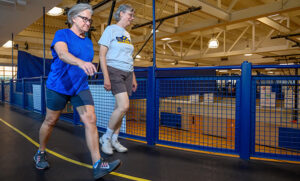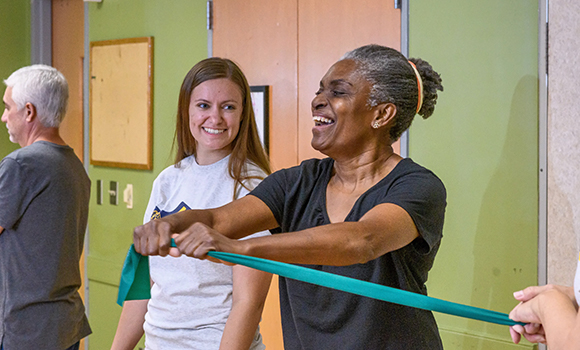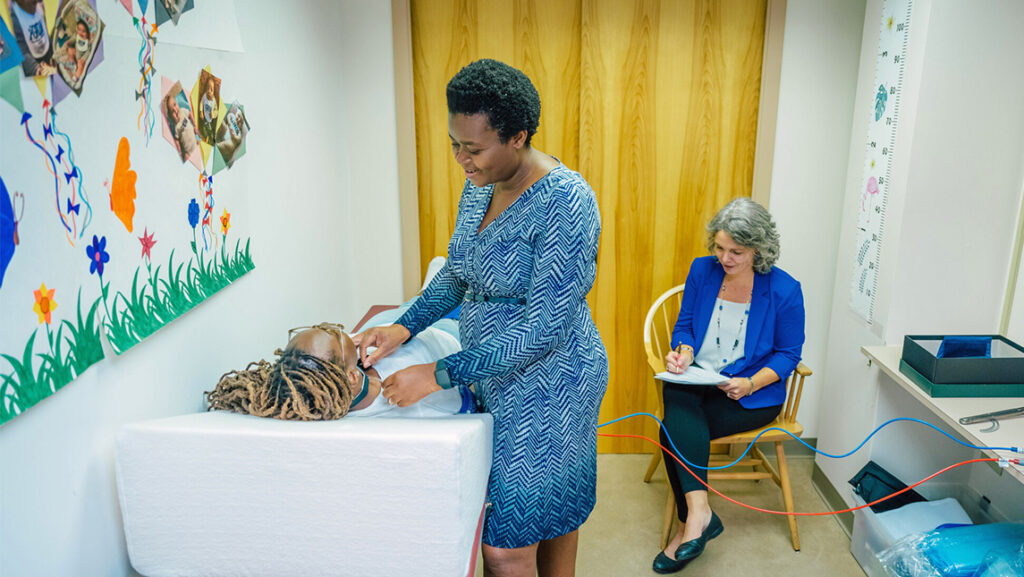There is no cure for Alzheimer’s disease, the most common form of dementia. But what if something as simple as exercise could delay its onset?
That’s what Dr. Jennifer Etnier and UNC Greensboro’s Department of Kinesiology want to discover in their Physical Activity and Alzheimer’s Disease 2 study (PAAD2), which is now recruiting participants.
As a follow-up to the first PAAD study in 2013, which found that there were cognitive benefits associated with exercise, Etnier and her team have been awarded a five-year, $3.4 million National Institutes of Health (NIH) grant to support a full experimental design for PAAD2. This study will explore the hypothesis that those with a family history of dementia or Alzheimer’s disease can cognitively benefit from exercise.
“What we’re trying to see is if physical activity is a way to maintain your status of cognitive normality for longer to delay any onset of dementia or Alzheimer’s disease. This will shorten the amount of time that you might have to deal with the consequences of the disease,” says Etnier, principal investigator and Julia Taylor Morton Distinguished Professor.

Unlike similar studies, this study will focus on a younger age group – 40 to 65-year-olds – and will utilize group exercise instead of solo exercise.
Participants will undergo testing at the beginning, middle, and end of the study to measure thinking abilities, brain function, and biomarkers related to Alzheimer’s disease.
Etnier hopes the test results show that both those with a genetic risk for Alzheimer’s and those without will benefit equally from exercise. Even more, she hopes to see genetic carriers benefit more from exercise than those without that risk factor.
Participants will be randomly assigned to either a free one-year exercise intervention at a local YMCA or to a control group. Exercise intervention will involve walking and training with resistance bands three times a week for a full year, while the control group will maintain their normal lifestyle.

The department is recruiting participants from Guilford County, Forsyth County, Alamance County, Davidson Country, Randolph County, and Rockingham County.
In addition to Etnier, the team working on the study includes other UNCG faculty: Dr. William Karper and Dr. Laurie Wideman from the Department of Kinesiology; Dr. Chris Wahlheim from the Department of Psychology; and Dr. Jeff Labban from the Office of Research, School of Health and Human Sciences; post-doctoral research fellows Dr. Nate Berry, Dr. Shin Park, and Dr. Alexis Slutsky; ECU visiting scholar Tomeka Williams; and project coordinator Shonda Mobley.
Etnier has high expectations for the long-term impact of this work.
“I think we have the potential to provide some scientific evidence showing that exercise really can make a difference for people who have the risk for this progressively debilitating disease.”
Read more about the study and learn how you can participate: paad2.wp.uncg.edu.
Check out a video interview with Etnier and more highlights from the study below.
Story by Alexandra McQueen, University Communications
Photography by Martin W. Kane, University Communications
Videography by Alexandra McQueen, University Communications



